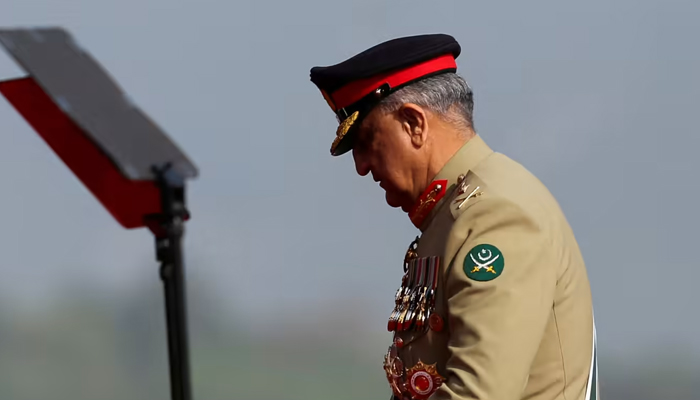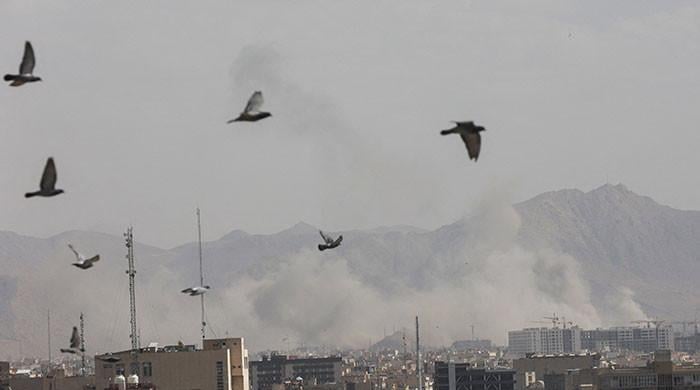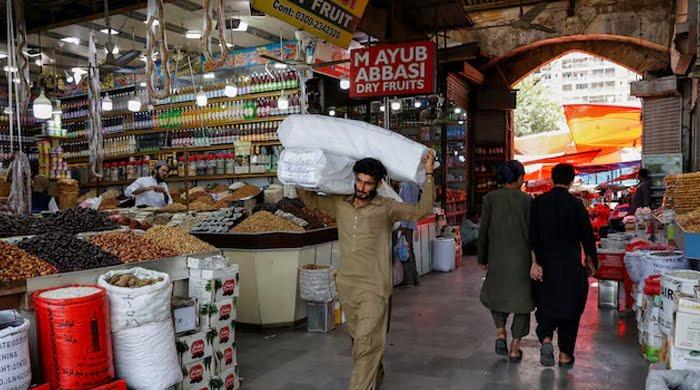After November 29
Exactly one week from today, Pakistan will breathe a sigh of relief (or shudder with deep trepidation)
November 22, 2022

Welcome to November 22, 2022. There are now only seven short, autumnal days to go. Exactly one week from today, Pakistan will breathe a sigh of relief (or shudder with deep trepidation).
No matter what happens, we know that on November 29, 2022, a new story will begin — even if it is the unlikely scenario of the story being the story of 2019.
How will this new story be written? Well, we don’t write, so we don’t know. To write books, you need to read books. And to read books, you need to be able to read.
Pakistan’s literacy rate is stuck at around 60% for the last many years. This is despite massive increases in school enrolment.
People often ask me: “How can Pakistan’s literacy rate be stuck, even whilst its enrolment numbers and budgets for education keep increasing?” The short answer is demography.
The more accurate answer is a combination of demography and a public-sector cost structure in which a constant escalation is guaranteed — and a consistent absence of accountability is built in.
Neither demography nor public-sector costs nor a lack of accountability are disconnected from the apocalyptic chaos that overtakes Pakistani governance every time an army chief is due to retire.
This apocalyptic chaos, however, should not be overstated. Recency bias and anchoring heuristics both combine to trick us into believing two things that are both problematic and can distract us.
The first is that our mind tricks us into believing that the latest, most recent outrage is the worst one ever. This could be true, but isn’t necessarily.
The second is that our mind tricks us into solving a problem using the analytical tools we are already most comfortable with. If civil-military disequilibrium is the primary analytical tool of choice for you, you will apply it with great vigour (but not necessarily the requisite rigour) to every Pakistani problem.
The Pakistani polycrisis of 2022 is many things, and it is not by definition just one thing. Is the axis of the country’s politics the retirement and appointment of a new army chief? Yes. And is that a very bad thing and a very not good thing? Yes.
But does this explain a recurring and inescapable current account deficit, a low literacy rate, indefensible disempowerment of women, and unsustainable, wild fiscal dynamics? In the words of that great poet-philosopher, whose name I am forgetting: “absolutely not”.
In his new op-ed series, former finance minister Dr Miftah Ismail has been writing very powerfully about some of the problems the country faces. His thesis on the one percent republic has been rightly celebrated as a bold and honest critique, including of his own class and privilege.
In a more recent piece, Dr Ismail has asked one of the most important and foundational questions the country and its intelligentsia must contend with boldly and honestly.
He says, “We often have a debate in Pakistan about whether we should have presidential or parliamentary democracy, or even a military dictatorship. Other countries have progressed under all three. We have done badly under all. The problem isn’t the type of government we have”.
And follows this up with, “All countries have problems but successful nations resolve them. Our governments only put off resolving problems and, in the process, exacerbate them”.
This is a very powerful prompt if one is interested in digging beyond the anchoring bias, or recency bias that afflicts all of us. Let’s put it slightly differently.
Pakistan has had many crises across the systemic time and space that are supposedly the bedrock of disagreement. Concurrently, peer nations of Pakistan have solved many crises and grown immensely, across both similar and varied time and space.
In short, military dictatorships are doing better than Pakistan, democracies are doing better than Pakistan, authoritarian states are doing better than Pakistan, countries with lots of freedoms are doing better than Pakistan, places with large Muslim majority populations where alcohol is banned are doing better than Pakistan, places with Muslims being persecuted are doing better than Pakistan.
Now here’s the kicker: Pakistan is doing the same. It is doing poorly. It does poorly under military dictatorship, it does poorly under democracy, it does poorly under overweight prime ministers, it does poorly under very fit prime ministers, it does poorly when there is a clear democratic dispensation, it does poorly when it is under a hybrid regime, it does poorly when I don’t have to censor my op-eds, it does poorly when I do.
This may raise existential issues for the Pakistani reader. What is Mosharraf trying to say? Is he saying that there is something uniquely Pakistani about the governance dysfunction and economic failure of the country? No. Mosharraf is not saying this at all.
What I am saying, and what should be clear by now, is that the things that we assume are keeping Pakistan down, are not keeping Pakistan down. They may contribute to keeping Pakistan down, but lots of other places with the same things in place, are doing just fine.
India treats minorities worse than any major nation on the planet. It is stable and doing great. China is less democratic than almost any major world power. It is stable and doing great. Turkey is run by an authoritarian regime. It is doing really great. Malaysia has a constant political crisis. It is doing great. Saudi Arabia is a kingdom, not a democracy — it is doing better than great. Bangladesh is run by a corrupt autocrat — it is doing great. Even Egypt, which is doing so so, is run by the military. It just hosted the most important global meeting of the year, the COP27. It is doing okay. Indonesia — which was in a complete state of paralysis and dysfunction in 1998 — just hosted the G-20 Summit in Bali. It is doing really well.
All of these countries have serious corruption and rent-seeking problems. They keep growing, keep manufacturing new products and generating new kinds of employment.
All of these countries have large Muslim populations. Most repeat the shahada regularly, offer durood many times a day, pray five times a day, fast during Ramazan, give zakat and try to perform the Hajj.
All have better literacy rates, better employment numbers, lower inflation, less, terrorist attacks and greater human security than Pakistanis.
Only a charlatan (or a fool) would blame all of this on just one single factor. So please don’t. But do consider what is different between these other countries and the Islamic Republic of Pakistan.
You can try to throw Afghanistan under the bus here, but Turkey has been Erdoganing for two decades whilst dealing with Kurdish terror, and Syrian collapse and Bangladesh has dealt with the Rohingya refugee crisis. So no, it isn’t Afghanistan. It also isn’t India. Every country listed above has serious border issues and serious national security challenges. None is held hostage by corruption, retirements, extensions, votes of no confidence or phantom foreign conspiracies.
The one permanent feature of Pakistan’s polycrisis, other than national failure, is the civilian bureaucracy. This is both true and tragic – because individually Pakistani bureaucrats are, to a woman and man, superhero-level functionaries.
They operate in hostile, adverse conditions, with low pay, and almost non-existent security of tenure. Yet they show up to work every day, and many, though not all, are able to swim with the best of them, globally.
Yet as a collective, the public sector is not a reflection of the individual integrity, ingenuity, and competence of the civil servant you (and I) know to be brilliant.
Instead, the Pakistani public sector is, to borrow from Matt Taibi, a great vampire squid wrapped around the face of Pakistan, relentlessly jamming its blood funnel into anything that smells like progress.
Pakistan has a hungry and consumption-obsessed youth bulge – and yet investors do not come to Pakistan. Pakistan has a massive domestic consumption sector, constantly growing – and yet foreign manufacturers do not set up shop here.
Pakistan has some of the best top-shelf technology, banking, medicine and engineering talent on the planet — and yet foreign firms rarely recruit directly from here.
All of this is anchored in a public sector that is viciously and relentlessly anti-progress, anti-growth, anti-middle class, anti-poor, anti-investor and anti-merit.
Many Pakistanis will celebrate on November 29. Many will celebrate when the next election is announced. Many will celebrate when their party or coalition wins the election. But I guarantee one thing: there will be nothing meaningful to celebrate.
Pakistan needs a wholesale dismantling and reformation of the public sector. Short of this, our preoccupations with our favourite issues and personalities will help me fill this space as I have done for almost two decades.
But these will not advance the Pakistani condition. Only a political process of public-sector reformation can do that.
The writer is an analyst and commentator.
Originally published in The News











